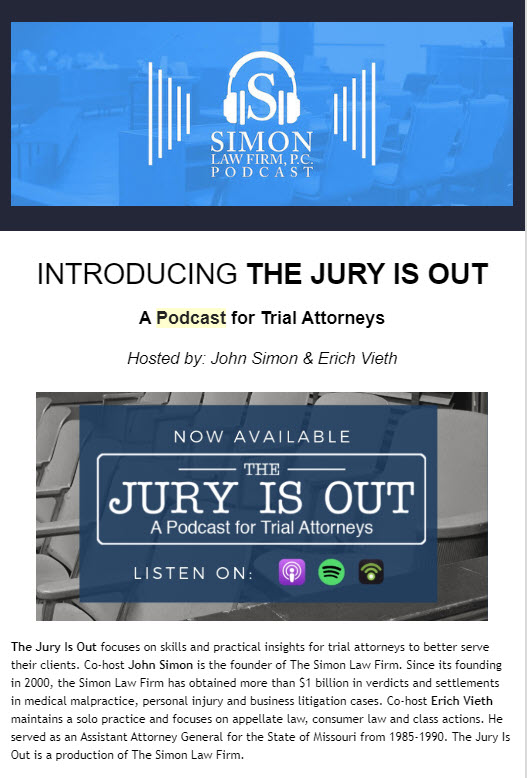A Clever Picture in a Legal Proceeding is Worth a Thousand Words
Our “distinct” professions often have a lot in common and that recently came to life. I’m a trial lawyer and my girlfriend, Renée Kennison, works in marketing as a creative concept developer. Among other things, both of us shape and distill ideas for maximum impact. There is a science, but also an art, to doing this well. We often look over each other’s shoulders as we work. Two days ago, it was Renée's turn to play lawyer.
I had been struggling to think of a good way to make an argument in an arbitration. I represented a married couple who had been the victim of fraud committed by a time share resort. One of the many issues of the case is that the resort was obligated by Missouri law to disclose in writing at the time of the sale that the couple had five business days from the date of the sale to rescind the deal. Missouri law allows time share purchasers to do this by merely sending a letter to the resort. Missouri law requires the resort to make this written disclosure in a precise way. The written disclosure needs to be 18-point type and it needs to have precise wording. Here’s the law:
Instead of simply printing this language as-is on a piece of paper and handing it to the couple, the resort played cute. First of all, the timeshare closing involves 50 pages of documents, many of them filled with with fluff and others with legalese. It's comparable to attending a real estate closing for a residence. Second, the resort camouflaged the disclosure by sandwiching the disclosure between two irrelevant paragraphs of fluff. It also made the entire disclosure document 18-point bold type to hide the important part of the notice, the part that gives the purchasers 5 days to cancel the deal, no questions asked. Also, instead of putting the word “Notice” at the top of the sheet as a warning to pay special attention to the notice, the resort tucked the word “Notice” into the text as though it were a verb. I can’t disclose the actual facts of this case because the resort contract forces this case to be in confidential arbitration, but the resort printed something comparable to this as its “cancellation notice”:
DEAR NEW OWNERS!
WELCOME TO OUR JOYOUS FAMILY OF RESORT OWNERS. IT IS GREAT TO HAVE YOU IN OUR FAMILY AND WE HOPE YOU ARE SO HAPPY BEING PART OF OUR COMMUNITY. PLEASE REFER YOUR FRIENDS AND FAMILY TO US, SO THAT THEY CAN BUY TIMESHARES TOO.
NOTICE YOU HAVE THE RIGHT TO CANCEL THIS AGREEMENT WITHIN FIVE DAYS AFTER THE DATE OF THIS AGREEMENT. CANCELLATION MUST BE IN WRITING AND IF SENT BY MAIL, ADDRESSED TO THE OTHER CONTRACTING PARTY AS SHOWN ON THIS AGREEMENT, CANCELLATION WILL BE ACCOMPLISHED AT THE MOMENT THE LETTER IS POSTMARKED. IF SENT BY MAIL, THE LETTER MAY BE CERTIFIED WITH A RETURN RECEIPT REQUESTED. YOUR RIGHT TO CANCEL CANNOT BE WAIVED.
AGAIN, IT’S GREAT TO HAVE YOU IN OUR COMMUNITY. ENJOY HIKING, BIKING AND ALL OF THE OTHER AMENITIES. NEVER HESITATE TO REACH OUT TO US IF WE CAN BE OF ASSISTANCE TO YOU. YOU ARE IMPORTANT TO US. NOW GO ENJOY YOUR RESORT.
The resort is claiming that it followed the law simply because all the statutorily-required words appear in their written notice. I was looking for a way to make a high-impact argument that the resort’s method of disclosing the 5-day right to cancel violated both the terms and the spirit of Missouri Law. After hearing my concern, Renée said, “What the resort has done is like creating a highway sign that hides the important warning in between two unimportant things. Perfect! Renée offered to create an image for me, and I used her image today in my closing argument:
I argued the case today. In a few weeks, we'll see whether my clients prevail.




